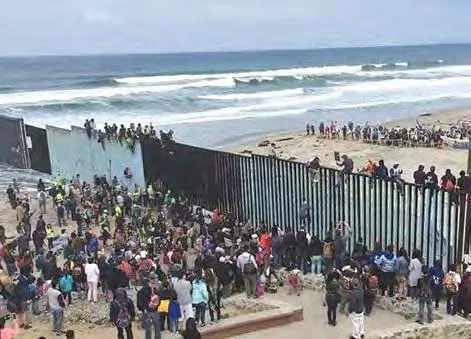Several Democratic members of Congress are demanding answers regarding the Border Patrol’s use of Critical Incident Teams (CITs), also known as “shadow units.”
Shadow Units make it sound “scary” when in reality they are local and state law enforcement.
Consider this:
The Border Patrol’s Critical Incident Teams (CITs) operated similarly to the Kitsap Critical Incident Response Team (KCIRT) in Washington state. CITs were specialized units tasked with investigating serious incidents involving Border Patrol agents, such as use of deadly force or incidents resulting in serious injury. Like KCIRT, which comprises multiple law enforcement agencies working together to investigate incidents impartially, CITs were responsible for gathering evidence and interviewing witnesses.
For more on KCIRT, see the full article here.
CIT teams were assigned to incidents involving Border Patrol agents and have been accused of intimidating witnesses and tampering with evidence to shield agents from federal liability.
A report by the U.S. Government Accountability Office (GAO) revealed that these units operated in seven of nine Border Patrol sectors along the southwest border, including San Diego, with little oversight for years. Although CITs were disbanded in 2022, their previous actions left the Office of Professional Responsibility (OPR) responsible for investigating critical incidents involving Border Patrol personnel.
Congress members Juan Vargas, Sara Jacobs, Scott Peters, and Joaquin Castro expressed concern over the lack of federal oversight and demanded transparency from the Biden administration. The GAO’s report indicates that while CITs were disbanded, Border Patrol personnel continue to investigate non-critical incidents inconsistently. The GAO recommended standardizing the response to non-critical incidents and ensuring OPR investigators have clear guidance and adequate training, according to this article.
Recent news articles have highlighted these federal watchdog concerns, noting that local and state law enforcement—CITs—collected evidence and conducted interviews in cases that should have been handled by independent investigators, such as the FBI or the Department of Homeland Security’s Office of Inspector General. This raised significant questions about the integrity of the investigations into incidents involving Border Patrol personnel.
In response to these findings, the Department of Homeland Security (DHS) has restructured its approach, transferring all critical incident investigations to the OPR. Though concerns about its independence persist, the OPR has significantly increased its investigative capacity, given that many of its investigators are former Border Patrol agents. This restructuring aims to ensure greater transparency and accountability in handling incidents involving Border Patrol personnel, addressing long-standing issues related to the oversight and conduct of CITs.
The Border Patrol has committed to improving oversight and training to enhance transparency and accountability, which are essential for maintaining public trust.
For more details, you can read the full GAO report here (US GAO).
Resources:
DHS restructures controversial Border Patrol Investigations teams
To support our journalism:
